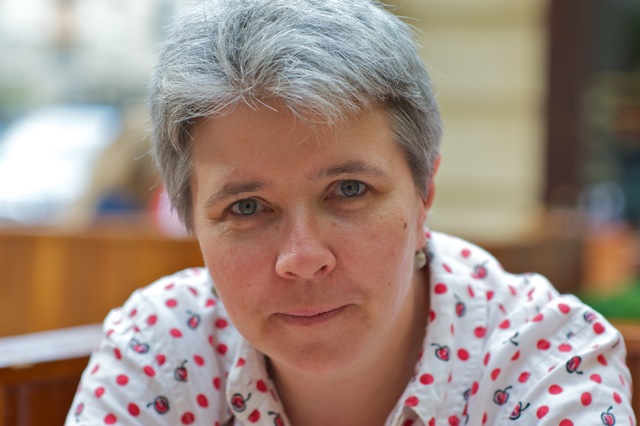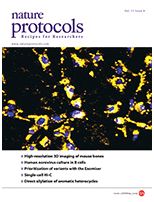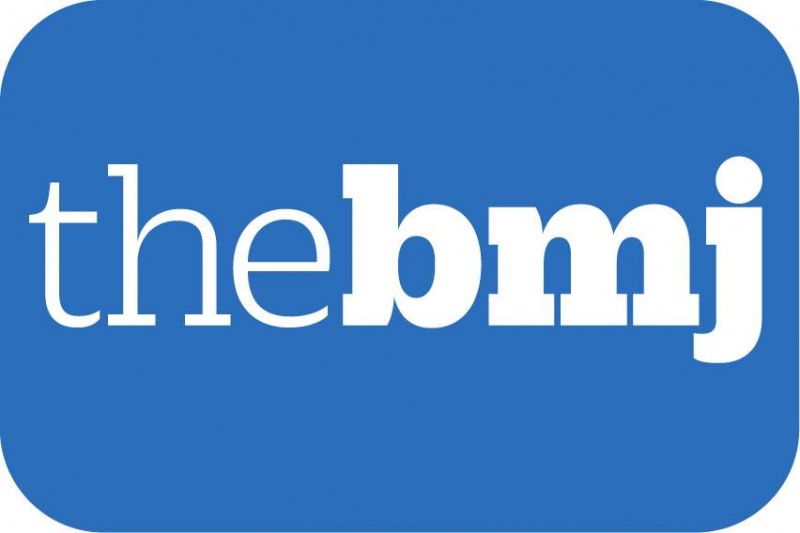 Authorship is the topic of our case of the month, and rightly so, as it is easily one of the most difficult issues that journals, and more importantly their authors, have to deal with. In any given institution it is unlikely that you will find anyone who has never been involved directly or indirectly with some sort of authorship dispute. Although there are many guidelines on authorship available – including from the ICMJE and others – it remains an evolving, difficult topic. Our recent discussion document on authorship outlines some of the key areas. Authorship is a good example of where, as we have also discussed previously, journals and institutions need to work together, and where institutions have a critical role to play. This in turn illustrates one of the central themes that guide COPE – publication ethics is not the sole preserve of journals but it is something that anyone involved in the research process has to be willing to engage in.
Authorship is the topic of our case of the month, and rightly so, as it is easily one of the most difficult issues that journals, and more importantly their authors, have to deal with. In any given institution it is unlikely that you will find anyone who has never been involved directly or indirectly with some sort of authorship dispute. Although there are many guidelines on authorship available – including from the ICMJE and others – it remains an evolving, difficult topic. Our recent discussion document on authorship outlines some of the key areas. Authorship is a good example of where, as we have also discussed previously, journals and institutions need to work together, and where institutions have a critical role to play. This in turn illustrates one of the central themes that guide COPE – publication ethics is not the sole preserve of journals but it is something that anyone involved in the research process has to be willing to engage in.
Letter from the Chair
Case of the month
 Every month we highlight a publication ethics case that has been brought to the COPE Forum, or a query posted to COPE council by one of our members.
Every month we highlight a publication ethics case that has been brought to the COPE Forum, or a query posted to COPE council by one of our members.
Author disagreement blocks submission (case #15-02)
A paper was submitted to a journal from author A and author B. While the paper was under review, the editor received an email from author A stating that s/he had not read the paper, was not aware of the submission and did not agree with the submission. The editor contacted author B, who admitted that s/he had submitted the paper after many failed attempts to contact author A. The editor asked the Forum whether he should contact author A directly, or would it be possible to publish the paper against author A’s objections. Read the full case details, along with the discussion and advice from the Forum: http://publicationethics.org/case/author-disagreement-blocks-submission
Focus
Discussion document: Consent to publish medical case reports
Report from the COPE Education Committee
The need for consent to publish medical case reports has been raised in many venues where authors and editors interact. On the author side, it can be difficult to obtain consent when patients have died, or when a case cluster is discovered retrospectively in a data repository, such as a poisons or a cancer registry. On the editor side, the need to protect patient confidentiality and balance the essential elements of the case to create a meaningful product is critical. Particularly with medical case reports, there is the possibility of identifying patients by combining several characteristics (age, sex, condition, geographic location, genomic information) and searching databases. This is a violation of patients’ rights to privacy. Yet, obscuring critical elements of a case could render it useless as an illustration of a scientific point.
A well known case in the USA about the genomic data from the HeLa cell line created privacy concerns for several generations of descendants of the long deceased Henrietta Lacks, from whom the cancer cell line was derived (http://www.nature.com/news/deal-done-over-hela-cell-line-1.13511). Controversy about how this case was handled by the NIH still remains. It is also clear that HeLa genome data are the basis for hundreds of scientific papers already published or in the process of becoming public as scientists continue to grow HeLa cells in laboratories around the world. A well designed, consent to publish form could prevent some of these problems in the future.
The COPE discussion document (Best Practice for Consent for Publishing Medical Case Reports) and accompanying links to case report forms and guidelines are intended to support journal editors as they revise author guidelines for submission of case reports. What is still needed is a more inclusive view of case reports in other disciplines, such as education, policy, economics, and other fields in the humanities and social sciences. COPE welcomes comments from members on all aspects of this document. Please email all comments to Natalie Ridgeway, COPE Executive Officer here: http://publicationethics.org/contact-us
In the news
 Role of the ethics council at Karolinska Institute to be reviewed
Role of the ethics council at Karolinska Institute to be reviewed
Following misconduct case against surgeon Paolo Macchiarini
http://ki.se/en/news/role-of-the-ethics-council-to-be-reviewed
 Paper by Obokata, STAP stem cell researcher, retracted after concerns raised about some of the figures
Paper by Obokata, STAP stem cell researcher, retracted after concerns raised about some of the figures
Reproducible subcutaneous transplantation of cell sheets into recipient mice
http://www.nature.com/nprot/journal/v6/n7/full/nprot.2011.356.html
 Paper retracted and UK doctor suspended for data fabrication and submission of paper without the knowledge and approval of the other author
Paper retracted and UK doctor suspended for data fabrication and submission of paper without the knowledge and approval of the other author
Co-author had not approved the paper and the doctor had fabricated an email address for them
http://www.hindawi.com/journals/isrn/2013/248476/abs/
http://www.bmj.com/content/352/bmj.i1054?sso=
Lessons from the past: how authors corrected their own mistakes in the physical sciences in the 1970s and so prevented wasting scientific effort by others
Evidence against superheavy elements in giant-halo Inclusions re-examined with synchrotron radiation
http://journals.aps.org/prl/abstract/10.1103/PhysRevLett.40.507
 How to kick start your academic writing
How to kick start your academic writing
A constant process, as shown by Raul Pacheco-Vega, assistant professor of comparative public policy at the Centro de Investigación y Docencia Económicas (CIDE), Mexico City
https://www.timeshighereducation.com/blog/how-kick-start-your-academic-writing
 How do scientists name elements?
How do scientists name elements?
Scientists call for new element to be named after physicist Henry Moseley killed in WWI
http://www.ibtimes.co.uk/scientists-call-new-element-be-named-after-physicist-henry-moseley-killed-wwi-1546392
Debate over Sci-Hub
A search system plus an associated repository that contains illegally obtained copyrighted material obtained from publishers’ sites has triggered much debate, including two postings on the Scholarly Kitchen and and in the New York Times
http://scholarlykitchen.sspnet.org/2016/02/25/sci-hub-how-does-it-work/
http://scholarlykitchen.sspnet.org/2016/03/02/sci-hub-and-the-four-horsemen-of-the-internet/
 Huffington Post criticises level of ethical scrutiny of trial published in NEJM
Huffington Post criticises level of ethical scrutiny of trial published in NEJM
Flexibility in Duty Hour Requirements for Surgical Trainees (FIRST) trial reviewed by an IRB manager but the IRB itself did not review or approve the trial protocol
http://www.huffingtonpost.com/michael-carome-md/outrage-of-the-month-ethi_b_9349076.html
 Statisticians issue warning over misuse of P values
Statisticians issue warning over misuse of P values
American Statistical Association (ASA) advises researchers to avoid drawing scientific conclusions or making policy decisions based on P values alone
http://www.nature.com/news/statisticians-issue-warning-over-misuse-of-p-values-1.19503#/ref-link-1
COPE in the news
COPE is often asked to comment on issues in the news.
COPE Secretary, Charon Pierson, did a Q&A on retrations based on COPE cases for Retraction Watch
What's been happening at COPE
COPE Seminar 2016: An Introduction to Publication Ethics
COPE will host “An introduction to publication ethics” seminar in Oxford on 13 May 2016. This seminar is aimed at new or less experienced editors and editorial and publishing staff, who would like to learn more about COPE and publication ethics. The seminar will focus on the themes of plagiarism and authorship.
The seminar is being held at the Wiley offices in Oxford (9600 Garsington Road, Oxford, OX4 2DQ, UK), on Friday 13 May 2016, 10am–4pm.
The seminar will include an overview of COPE, two invited speakers, in addition to breakout workshop sessions.
Registration is now open via the COPE website.
Vacancies on COPE Council
Due to expansion of Council, we are seeking nominations for seven new Council members. We are specially seeking candidates from Mainland Europe, South America and Asia, and with expertise in any of the following areas: finance, the humanities, educational resources, membership relations or book publishing.
Further details, including a job description, can be found on the COPE website.
Those who are interested should contact the COPE administrator.
The closing date for applications is: 15 April 2016
Applications for COPE Ombudsman
COPE is looking to appoint a new Ombudsman to ensure that COPE carries out its stated mission in a fair, expedient, and transparent manner, and that its Council and Trustees are acting in the best interests of the organisation and its members. Applicants should not be a member of COPE.
For more details, including now to apply, see here: http://publicationethics.org/news/applications-cope-ombudsman
COPE is recruiting a part-time, freelance Administrative Assistant
COPE is looking to recruit a freelance Administrative Assistant to assist the Membership Subcommittee and COPE Administrator with managing new member applications and supporting our existing membership. The full job description and how to apply can be found here.
February Forum cases
The cases presented at the COPE Forum on 12 February 2016, along with the advice given and updates on previous cases, are now on the COPE website to view.
New cases
16-01 Disclosure and transparency issue
16-02 Publication of a manuscript on an external website after acceptance but prior to journal publication
16-03 Reviewer concerns about transparency of the peer review process
16-04 Multiple redundant submissions from the same author
16-05 Data anonymisation
Updates
15-08 Author disagreement regarding article corrections
15-14 Duplicate publication and removal of article
15-16 Profusion of copied text passages
Forum discussion topic
Data sharing was the discussion topic at the COPE Forum on 12 February 2016. Data sharing is increasingly viewed as an essential step in improving research transparency and reproducibility. There has been a lot of discussion on the imperative for data sharing in the biomedical arena, particularly of publically funded research. As a result, there are many disciplines where proposals for data sharing are being discussed. A summary of the discussion can be found on the COPE website.
COPE workshop at 13th EASE Conference 10 June 2016
COPE will be running a workshop on Friday 10 June 2016, during the 13th European Association of Science Editors (EASE) General Assembly and Conference, which will take plact at the School of Medicine, Strasbourg, France. The main theme of the conference is “Scientific integrity: editors on the front line” along with many other hot topics. There will also be pre and post-conference practical workshops, and the conference will run from 10 to 12 June 2016. The COPE workshop will cover handling publication ethics issues, peer review misconduct and retractions.
Registration is now open. For more details and to register, see here.